Found 38 results for Creation
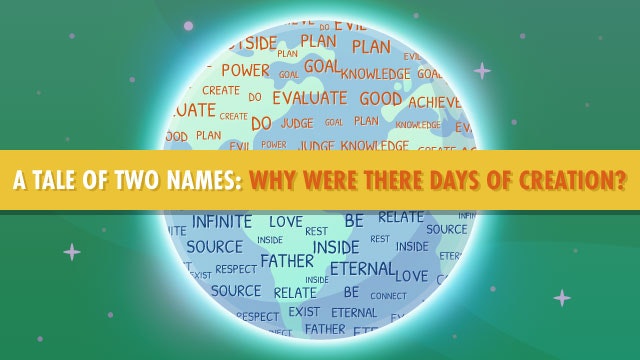
Why Were There Days of Creation? Week 2
↳ part 2 of 3 of the series "A Tale of Two Names: Why Were There Days of Creation?"
In this week's lecture, Rabbi Fohrman goes through the opening verses of Creation, and helps us understand, just what these 'days' were anyway? The result is a beautiful revelation of God's graciousness and power, and brings a different meaning to the Shema we say every morning and every night. For our latest, most expansive and refined material on this subject, be sure to watch our fully animate course Making Sense of Morning Prayers. This lecture is part 2 of a 3 part series. For the first series on A Tale of Two Names, be sure to listen to A Tale of Two Names: Elokim and YHVH. For the last in the lecture series, listen to A Tale of Two Names: From The Garden To The Flood.

The Relationship of Creation
↳ part 3 of 3 of the series "Birkat Kohanim: A Guide to Parenting"
In Part 3 of this three-part series, Rabbi Fohrman continues his exploration of what might be the Torah's guide to parenting and connects it to the story of Creation.
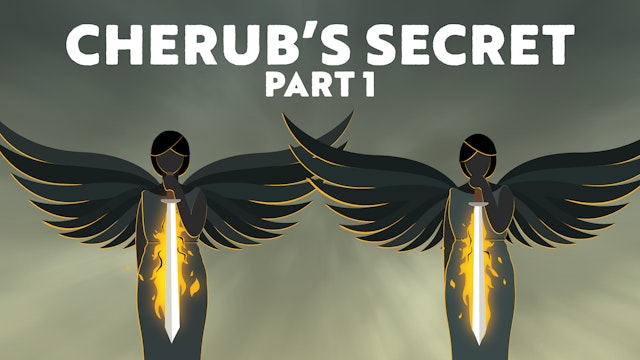
Cherubs' Secret: How to Read the Biblical Creation Story, Part 1
↳ part 1 of 4 of the series "The Cherubs' Secret: How To Read The Biblical Creation Story"
This lecture, given on October 17, 2015, is the first of a series at the Young Israel of Woodmere about how to read the beginning of the story of creation and the first several chapters of Genesis. Note: the first few minutes of this lecture were not recorded. This video begins a few minutes in, and you should be able to follow perfectly. Enjoy!
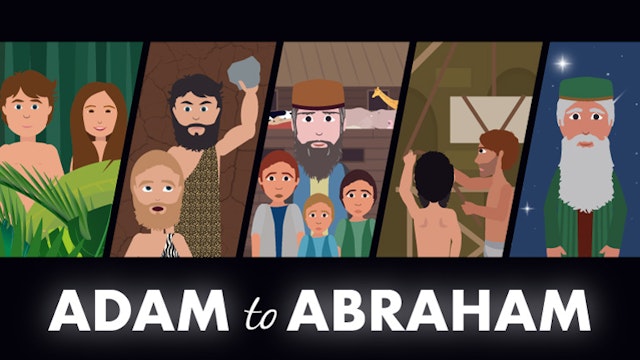
Brave New World: Creation And Re-Creation
↳ part 2 of 11 of the series "A Brief History Of The World: From Adam To Abraham"
Part II of the audio series "A Brief History Of The World: From Adam To Abraham." A Brief History Of The World: From Adam To Abraham is the first of four sets of lecture series that span the entire book of Genesis! Be sure to listen to it all! The remaining sets of lecture series are: Abraham's Journey 1, Abraham's Journey 2, and Jacob: Man of Truth? For a more recent and condensed version of A Brief History Of The World: From Adam To Abraham, we recommend listening to Genesis Unveiled.
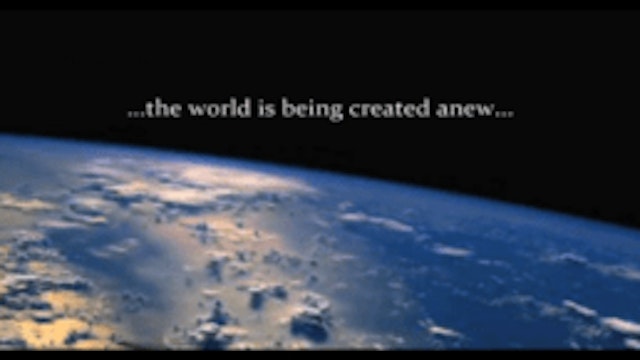
Re-Creation?
↳ part 25 of 76 of the series "Genesis Unveiled"
In this video, Rabbi Fohrman suggests that the post-flood world of Noah was actually a "re-creation" of the world. He brings evidence that points to the idea that the earth itself was the target of the flood - not just humankind and the animal kingdom. For a more in depth version of Genesis Unveiled, we recommend listening to A Brief History Of The World: From Adam To Abraham, the first of four sets of lecture series that span the entire book of Genesis! Be sure to listen to it all! The remaining sets of lecture series are: Abraham's Journey 1, Abraham's Journey 2, and Jacob: Man of Truth?

Why Were There Days of Creation? Week 1
↳ part 1 of 3 of the series "A Tale of Two Names: Why Were There Days of Creation?"
Why were there six days of creation, at all? It seems like such a quaint notion, the universe being created in 6 days. But you didn't have to be a rocket scientist from the 21st century to realize that an Elenterprise like the universe might take a little more than the 6 days to construct. And you likewise don't have to be the world's most sophisticated scientist to realize that it's pretty hard to get days, in the traditional sense, without the sun and the solar system - which, inconveniently enough, only show up on day 4. So, what's with the days? Why does the Torah insist on them? In this course, we'll take a close look at the text of the Torah, with an eye toward solving these mysteries. For our latest, most expansive and refined material on this subject, be sure to watch our fully animate course Making Sense of Morning Prayers. This lecture is part 2 of a 3 part series. For the first series on A Tale of Two Names, be sure to listen to A Tale of Two Names: Elokim and YHVH. For the last in the lecture series, listen to A Tale of Two Names: From The Garden To The Flood.
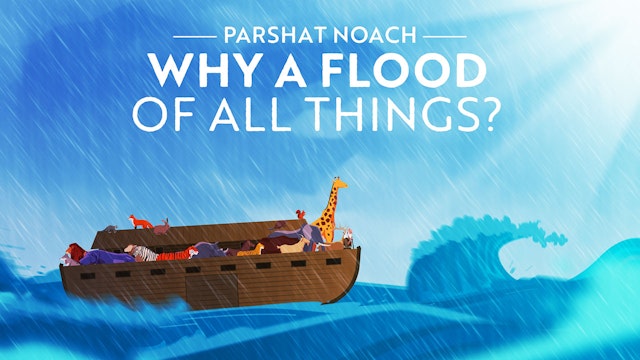
Why a Flood, of All Things?
This week’s parsha tells us about an epic event: the flood that God sends to destroy the earth. But we never stop to ask... why did God decide to send a flood, of all things? Interestingly, only last week, in the story of the creation of the world, we talked about all these same elements – deep waters, winds of God, and more. For some reason, the flood’s aftermath, the recreation of the world, mirrors the original creation in the Torah – but why? What is it we’re meant to learn from the flood?? The intriguing repetitions may change the entire way we think about the story of Noah and why God decided to flood the earth. Watch more: Genesis Unveiled
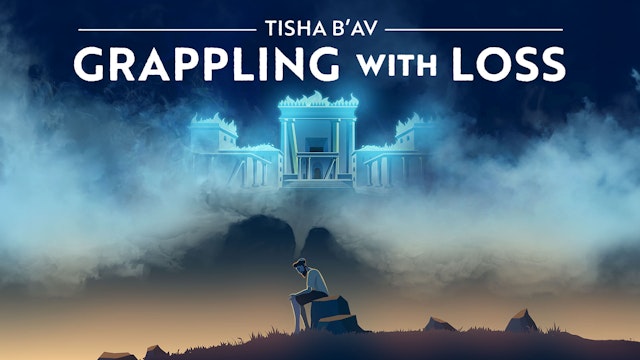
Back To Creation
↳ part 3 of 6 of the series "Why Does God Let Us Suffer?"
In episode two, Rabbi Fohrman explored the prophet Isaiah’s mysterious reference to God as the maker of light and creator of dark. In this episode, Rabbi Fohrman goes back to the creation story in Genesis to see if a look at the actual creation of light and darkness can help us understand what Isaiah has in mind. Once here, however, it becomes clear that the first few verses of Genesis are full of esoteric mysteries that need to be understood in their own right. A personal note from Rabbi Fohrman about this course: A word of caution -- although this is a video about loss, and how, to some extent, we might find peace in the face of it – this isn’t designed as something to be watched during shiva, or when one is wrestling with the searing pain of fresh grief. That pain, unfortunately, probably needs to be felt in an untrammelled way, I think, until we somehow re-emerge and feel ready to face the world again. This video, by contrast, is probably something to be watched after the passage of some time, when we are more at a distance from grief – but still confronting an aching sense of disquiet and unfinished business. For people who are there, I hope this video might provide a path to some peace or solace. So, please, bear that in mind, when choosing to watch this or engage with it. Loss, of course, is among the most personal of things any of us experience. I don’t know that my own reflections on it will resonate with your own – but I hope that in some way, they will.

What Do The Tabernacle And Creation Have In Common?
We learn in Vayakhel-Pekudei about the appointment of Betzalel as the architect of the Tabernacle. But there’s something very striking about the language describing this appointment. It sounds eerily similar to the language in the Creation story. What do Betzalel’s appointment and creation have in common? Join Rabbi Fohrman and Imu as they explore the commonalities between God creating the world for man and man creating the Tabernacle for God, and never think about Betzalel’s appointment the same way again.
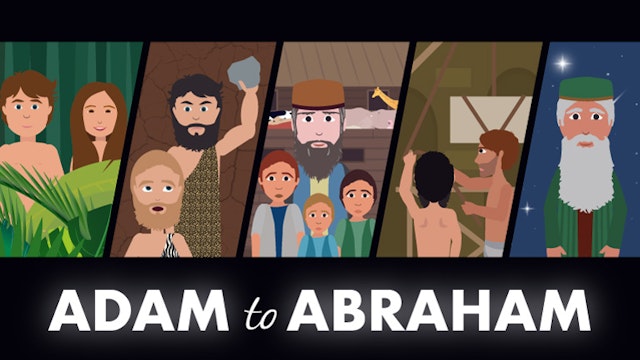
Three’s A Crowd: Two Trios Of Inter-Connected Stories, A Global Summary Of Creation And Re-Creation
↳ part 10 of 11 of the series "A Brief History Of The World: From Adam To Abraham"
Part X in the audio series "A Brief History Of The World: From Adam To Abraham." A Brief History Of The World: From Adam To Abraham is the first of four sets of lecture series that span the entire book of Genesis! Be sure to listen to it all! The remaining sets of lecture series are: Abraham's Journey 1, Abraham's Journey 2, and Jacob: Man of Truth? For a more recent and condensed version of A Brief History Of The World: From Adam To Abraham, we recommend listening to Genesis Unveiled.
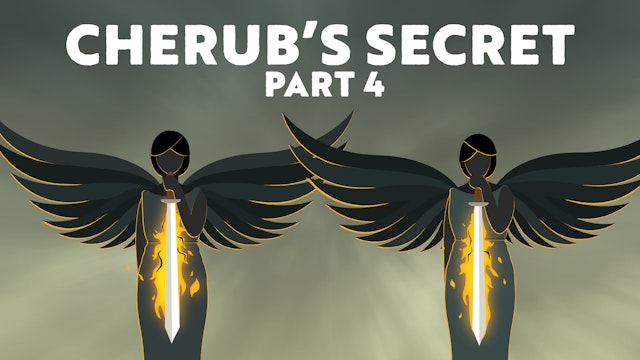
Part IV
↳ part 4 of 4 of the series "The Cherubs' Secret: How To Read The Biblical Creation Story"
NOTE: Rabbi Fohrman originally recorded this video on November 7, 2015 as the fourth in a series at the Young Israel of Woodmere about how to read the beginning of the story of creation and the first several chapters of Genesis. Due to video streaming issues, Rabbi Fohrman rerecorded this video on Sunday, November 15, 2015. This week, Rabbi Fohrman makes a subtle argument, that Genesis 1 is offering a conceptual, rather than a chronological, progression of creation. He goes through the three main separations of creation - chaos, darkness, and water, and argues that these terrestrial metaphors represent the basic infrastructure issues that God has solved for us in this world.
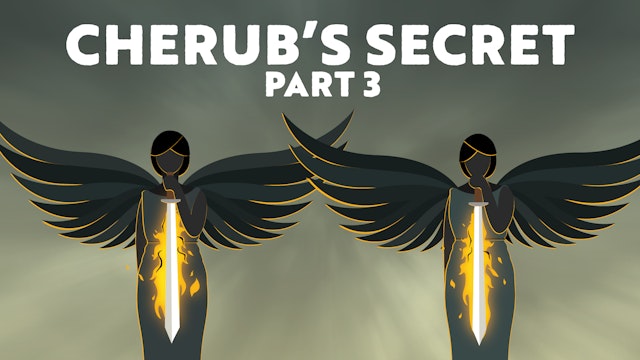
Part III
↳ part 3 of 4 of the series "The Cherubs' Secret: How To Read The Biblical Creation Story"
This lecture, given on October 31, 2015, is the third in a series at the Young Israel of Woodmere about how to read the beginning of the story of creation and the first several chapters of Genesis. Last week, Rabbi Fohrman asked if we could separate out the human lens of Torah to find out what actually happened in creation. In this lecture, Rabbi Fohrman continues that thought, focusing on shabbat Rabbi Fohrman asks about the connections between God's shabbat, at the end of creation, and our shabbat, when we rest at the end of the week. What do the connections mean? Remember, the rabbis say that we extrapolate the laws of shabbat from the activities we engaged in when we built the Tabernacle - how does shabbat relate to the Tabernacle?
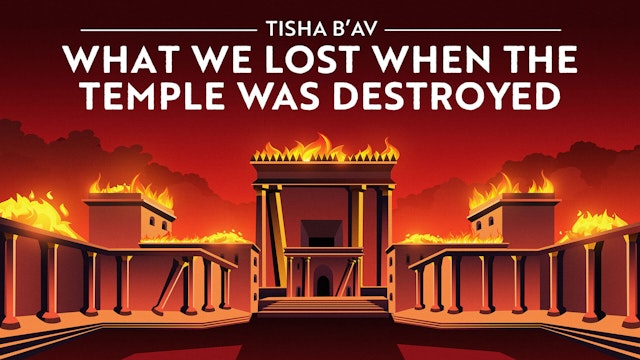
The Mishkan and Creation
↳ part 3 of 7 of the series "How Am I Supposed To Appreciate The Loss Of The Beit HaMikdash?"
Rabbi Fohrman uncovers a surprising connection between the story of Creation and the building of the Mishkan. We take a quick peek into God’s world before Creation. And we start getting to the root of some of our earlier questions about the Mishkan and its importance to us on Tisha B’Av.

Why Were There Days of Creation? Week 3
↳ part 3 of 3 of the series "A Tale of Two Names: Why Were There Days of Creation?"
This week's lecture, Rabbi Fohrman jumps into a what can be perceived as the holiest of prayers- literally 'Kedusha' or 'Holy'. What exactly is this prayer about? How are angels involved? And how can understanding this prayer help us understand our relationship with a God that it One in our world of dualities? For our latest, most expansive and refined material on this subject, be sure to watch our fully animate course Making Sense of Morning Prayers. This lecture is part 2 of a 3 part series. For the first series on A Tale of Two Names, be sure to listen to A Tale of Two Names: Elokim and YHVH. For the last in the lecture series, listen to A Tale of Two Names: From The Garden To The Flood.